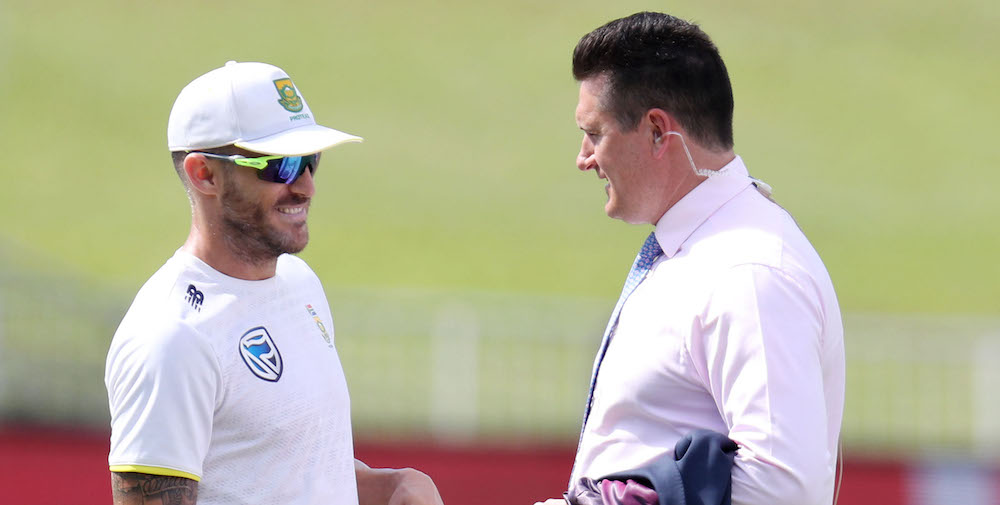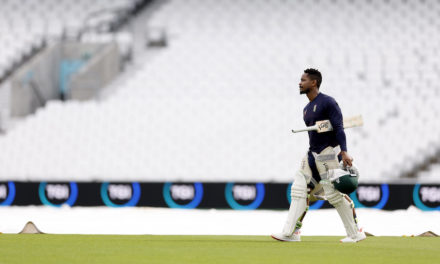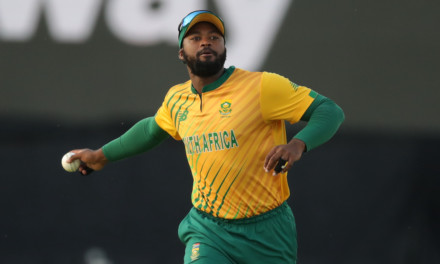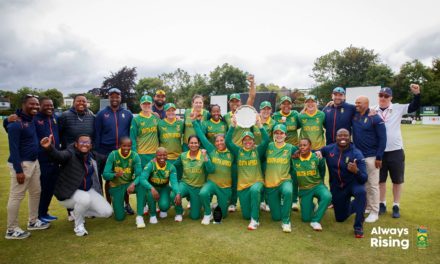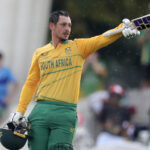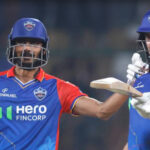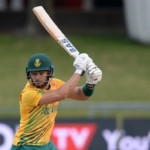ISSUE 26: They say good luck is when opportunity and preparation meet but in cricketing terms, it’s more likely that a strong, inspirational leader with a certain trait of characteristics both on and off the field engineers the luck required to consistently win Test matches.
The West Indies had Clive Lloyd; the Aussies had Allan Border, Steve Waugh, and Ricky Ponting; South Africa had Hansie Cronje and Graeme Smith. Those teams in the annals of cricketing history were dominant and have gone down as real juggernauts that seldom tasted defeat.
Even the late Shane Warne possessed all the attributes of a successful leader who should have gone on to greater heights with the Baggy Greens. His captaincy skills shone through when the highly unfancied Rajasthan Royals won the inaugural Indian Premier League in 2008.
In a South African context, we have seen the likes of Clive Rice’s Mean Machine Transvaal in the 1980s, Cronje’s 1990s Proteas and later under Graeme Smith’s assured leadership – albeit it took time for the latter to grow into his role and benefited from the unbelievable talented crop of players he had at his disposal later in his 11-year tenure as Proteas captain.
Rice’s leadership skills stemmed from his ultra-competitiveness to win at all costs – even when the chips were down his ability to inspire and lead from the front with his masterful bowling and never-say-die attitude rubbed off on his powerful unit. We’ve seen a similar style of captaincy from England’s Ben Stokes.
Cricket is that unique sport in which players perform individually within a team dynamic. The ability to get the most out of those individuals, while guiding them, shone through Rice’s aggressive approach.
His experience of captaining Nottinghamshire in the unforgiving County Cricket circuit ultimately honed that hard-nosed approach he was famous for. Rice had the uncanny ability to beat his opponents and get one over at the coin toss.
All that, though, cannot be achieved without the services of world-class players who can turn a match on its head in a matter of overs. As with the Windies of the 70s and 80s, and the Aussies who took over that baton for nearly two decades.
There have been instances where a team full of superstars have not performed to the best of their abilities such as India, who at times have struggled with strong leadership, but that changed dramatically after Gary Kirsten – a strong believer in having good leadership structures in place – took over the Indian coaching reigns.
It is no coincidence that under Cronje and Smith’s watch, the Proteas enjoyed highly successful winning streaks in the longer format over a sustained period, while the former was in charge of a well-drilled ODI outfit that was brutal in its approach and one run away from potentially being crowned world champions in 1999.
Cronje’s path was helped with the Grey Bloem connection that he shared with Kepler Wessels. It was Cronje who was named vice-captain under Wessels when the promising Free Stater was the youngest player in the squad.
He took over the captaincy role after the 1994 tour of England at the age of 24, which no one had a problem with at the time, and although there were a few bumpy rides in the earlier stages, Cronje conquered every single Test nation in a series except Australia.
Beating a star-studded Pakistan outfit away was nothing short of exceptional but the 2000 Test series win over in India was Cronje’s crowning achievement – not even the mighty Australians at the time were able to achieve that mammoth feat.
Forget about the match-fixing scandal that came straight after that impressive triumph, Cronje’s leadership skills were never doubted and often admired as forward-thinking. Cronje was 29 when the saga broke, and it would have been interesting to see what his record ended up being had he captained the Proteas to 100 Tests.
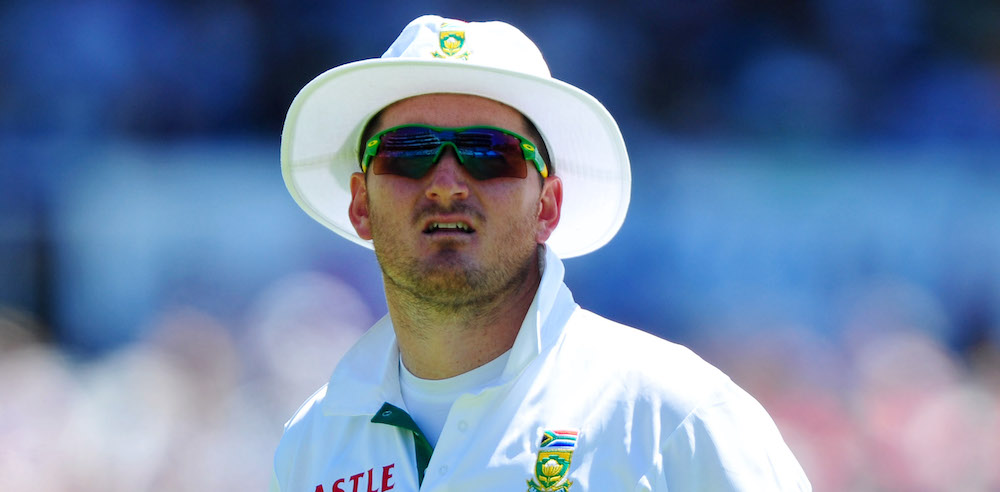
Smith’s path was similar to Cronje’s in many ways, however, he was not afforded the same power as Cronje and was forced to live in the long shadow of the match-fixing saga. It would have been interesting had Cronje not tragically perished in a plane crash to see how it may have played on Smith’s mind.
Smith announced his arrival as captain with a truckload of runs – the perfect statement and answer to his initial critics, who deemed the 22-year-old as too young to captain a Test side. But Smith will be the first to acknowledge that he learned on the job for his first three years as skipper.
That learning went way into 2006 and the steep curve flattened after Sri Lanka taught the Proteas a major cricketing lesson. By then, Smith as already building a side with fresh blood in Hashim Amla, Dale Steyn, Morne Morkel, AB de Villiers, Ashwell Prince, JP Duminy and to a lesser extent Paul Harris, whose role in how the Proteas pace attack strategically bowled as a unit should never be downplayed.
Although not half the cricketing brain that Bob Woolmer was, Mickey Arthur allowed Smith the same freedom that Woolmer afforded Cronje to show true leadership and give 100% responsibility to own the captaincy role and manage his troops. Yes, there was a clique, but all great Test teams need that changeroom nuance to be able to ‘click’.
From 2007 to Smith’s retirement, the Proteas dominated Test cricket and became No 1 in the world across all formats in early-2009 and came agonisingly close to emulating Cronje’s cricketing feats in India on two occasions. The 2012 tour to England was Smith’s second Everest before he tasted a second series win away to Australia later that year.
The current Test set-up sees Dean Elgar in charge and his leadership skillset is like Smith’s. Opening the batting and leading from the front with a gritty, hard-nosed approach has served his charges well and complements the Protea Fire.
Since the Windies Test series last year, Elgar has managed to get the best out of his team. The Proteas possess one of the more powerful bowling lineups in world cricket. Elgar has enough guile and determination to milk the cream from his bowlers.
Against India and New Zealand, we’ve witnessed come-from-behind displays that are the hallmark of a side that never gives up. For once, against England, Elgar held all the cards in the first Test, and he will need to summon his ability to get his men up for the fight that awaits his team in the deciding third Test.
Win a series against England, and Australia later this year, and Elgar can rightfully earn the plaudits his strong Test captaincy deserves.

